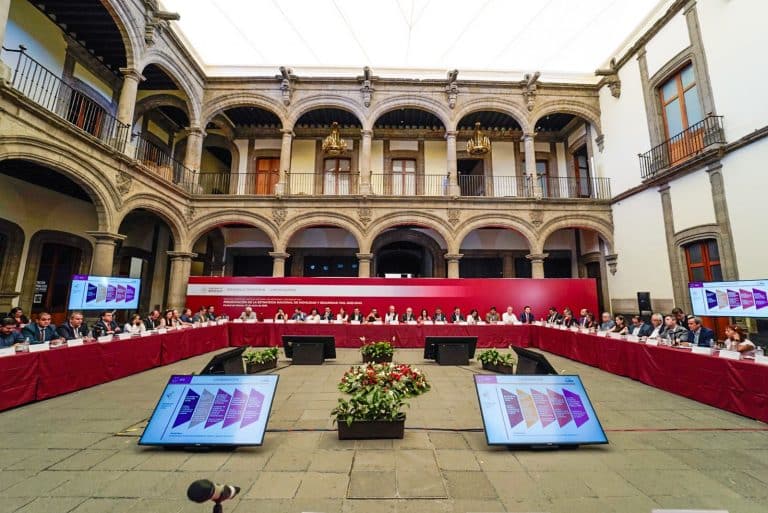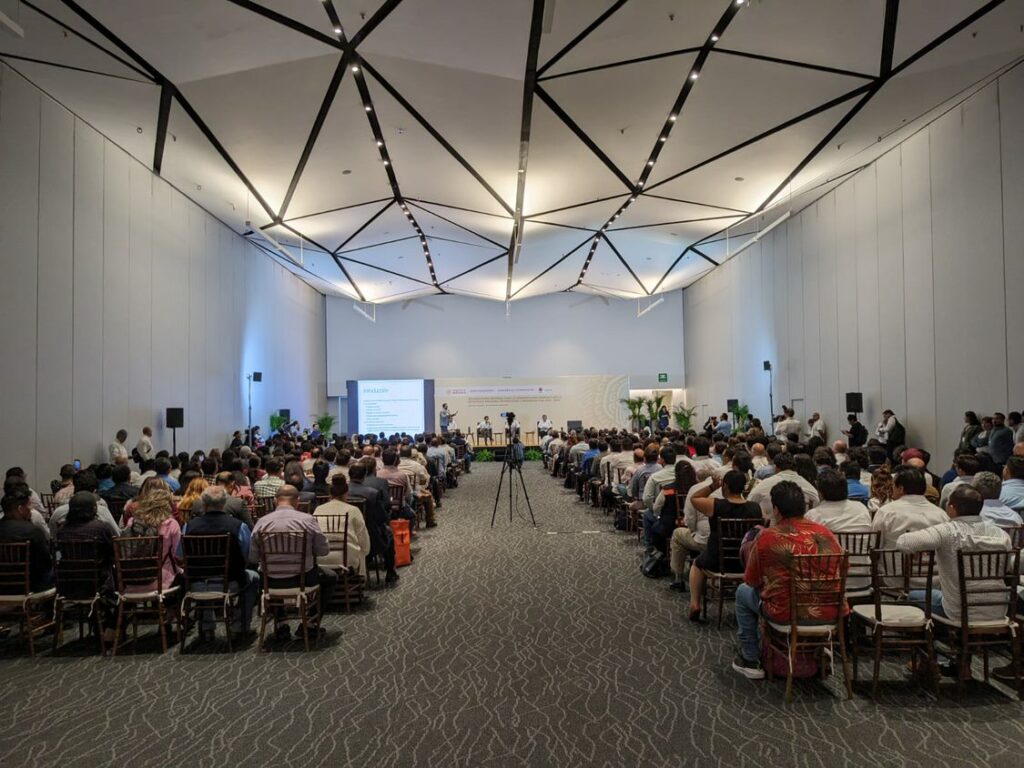
In Mexico, for those people interested in mobility issues, the term “ENAMOV” is beginning to become common. However, what it represents is not entirely clear, basically because it is a newly published document.
The acronym ENAMOV refers to the “National Strategy of Mobility and Road Safety” (in Spanish Estrategia Nacional de Movilidad y Seguridad Vial)”. It is a federal document, that is non-binding (does not establish legal responsibilities) but defines the direction of institutional actions at all levels of government related to the mobility of people and the movement of goods, for the period 2023 to 2042.
We share some guidance about the document after the support that the Deutsche Gesellschaft für Internationale Zusammenarbeit (GIZ) has provided to the Mexican government in recent years in terms of mobility and sustainable development.
The ENAMOV fulfills the obligation defined in the General Law on Mobility and Road Safety (LGMSV [in Spanish Ley General de Movilidad y Seguridad Vial]), issued on 17 May 2022, to create a national instrument that represents the basis for implementing public policies on these issues (art. 24 and 25).
The LGMSV was promoted by the Secretariat for Urban, Territorial and Agrarian Development (SEDATU), local governments and various civil society organisations with the support of the Deutsche Gesellschaft für Internationale Zusammenarbeit (GIZ) which started since the national process of regulatory harmonisation on mobility in 2019.
Among the first actions, the LGMSV stipulated to establish the National Mobility and Road Safety System (SNMSV in Spanish), with the aim of coordinating mobility and transport actions between federal and local governments. To this end, GIZ Mexico supported the elaboration of the operational guidelines of the SNMSV. In collaboration with mainly SEDATU, the Secretariat of Economy (SE), the Secretariat of Infrastructure, Communications and Transport (SICT), and the government of each state.
Summing up the background of the Law, the decree of the constitutional reform of December 2020 stated that “everyone has the right to mobility in conditions of road safety, accessibility, efficiency, sustainability, quality, inclusion and equality” (Article 4 of the Political Constitution of the United Mexican States). Thus, the State is obligated to provide the optimal conditions for safe and sustainable mobility options.

As for the process of building the ENAMOV, it highlights the fact that it was one of the first effective governance exercises in Mexico. The initial version was prepared by SEDATU, together with a group of expert consultants on mobility and transport.
Over the course of five months, this version was repeatedly commented by specialists and citizens in the sector. During the in-person and virtual meetings approximately 3,000 people and authorities from the three levels of government, which included municipal, state and federal authorities such as SICT, the National Institute for Women (INMUJERES), the Secretariat of Environment and Natural Resources (SEMARNAT) and the National Bank of Public Works and Services (BANOBRAS) were involved in the review process.
In that sense, the final version of ENAMOV is a document that integrates the voices of citizens and civil society organisations, academia, sectoral chambers and representatives of the private sector. GIZ and other organisations like the Inter-American Development Bank (IDB), the Transport and Development Policy Institute (ITDP), and the World Resources Institute (WRI) also accompanied SEDATU in this process of dialogue and joint construction.
Finally, on 22 June 2023, the ENAMOV was presented and approved by the SNMV. On 10 October 2023, the ENAMOV was officially published in the Official Journal of the Federation (DOF).
The next essential action is the alignment of all the normative and regulatory instruments of all levels of government, in accordance with the provisions of ENAMOV, and thus begin implementation.
As guiding document for public authorities, ENAMOV is important because it represents another step towards the specification of tangible actions for safe, inclusive and efficient transport systems. It places people´s safety and well-being as top priority valuing the hierarchy of mobility.
Within five strategic areas, objectives and actions for transitioning to accessible, efficient and environmentally-friendly and socially-inclusive mobility systems are defined. These actions include regulatory, operational, financial and institutional aspects. It also includes a monitoring and evaluation plan for the new reforms.
Public transport and active mobility are recognised as priority elements to promote. At the same time, the need to strengthen goods transfer systems and the country’s connectivity with other regions of the world is raised.
While there is still a long way to go to achieve the expected improvements, the ENAMOV brings us a little closer to the reality we want to build.
GIZ in Mexico through “Transition towards an Integrated and Intelligent Public Transportation System in Mexico (TranSIT)” project supports the federal government and the subnational government of Oaxaca, Yucatán and Guanajuato (soon also State of Mexico) in harmonising their regulatory instruments and developing demonstration projects that apply the principles of the LGMSV and ENAMOV.
Transition Towards an Integrated, Accessible and Smart Public Transport System in Mexico (TranSIT) is funded by the German Federal Ministry for Economic Cooperation and Development (BMZ). It supports the development and implementation of efficient, inclusive and intelligent public transport solutions, working closely with the mobility and transport authorities, the private sector, NGOs, civil society, and academia on state and subnational level.
You are currently viewing a placeholder content from X. To access the actual content, click the button below. Please note that doing so will share data with third-party providers.
More Information